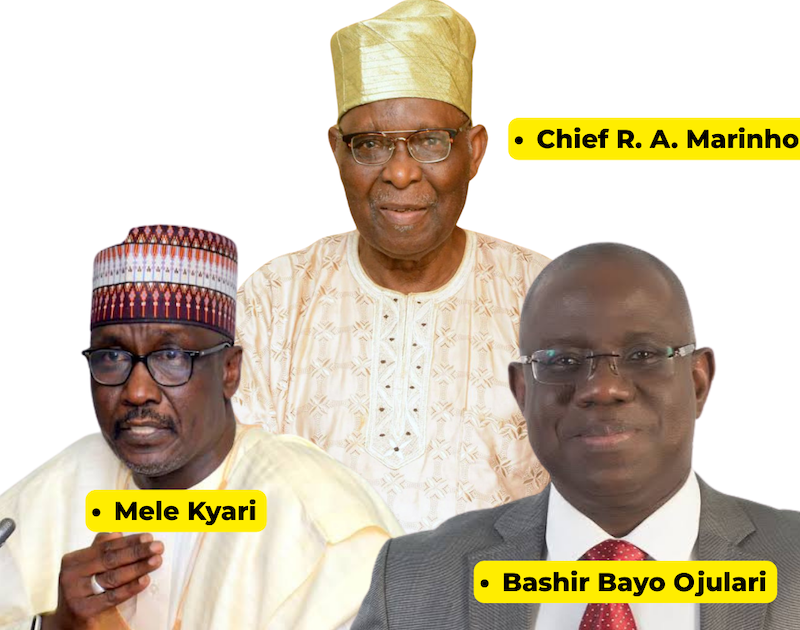Paragraph 1: Presidential Restructuring of NNPCL Leadership
President Bola Tinubu initiated a significant restructuring of the Nigerian National Petroleum Company Limited (NNPCL) leadership, announcing the removal of Mele Kyari as Group Chief Executive Officer (GCEO) and the dissolution of the existing board. This move, effective April 2, 2025, signals a shift in the administration’s approach to the crucial oil and gas sector. Kyari’s successor, Bashir Bayo Ojulari, will assume the mantle of leadership alongside a newly constituted 11-member board chaired by Ahmadu Musa Kida. This restructuring underscores the President’s focus on reshaping the strategic direction of the NNPCL and potentially influencing the broader energy landscape in Nigeria.
Paragraph 2: The New NNPCL Board Composition and Strategic Implications
The composition of the new NNPCL board reflects a blend of experience and regional representation. Adedapo Segun, who previously served as Chief Financial Officer, has been confirmed as a board member, providing continuity and financial expertise. The appointment of six non-executive directors representing each of Nigeria’s geopolitical zones – Bello Rabiu (North West), Yusuf Usman (North East), Babs Omotowa (North Central), Austin Avuru (South-South), David Ige (South West), and Henry Obih (South East) – emphasizes a commitment to inclusivity and balanced regional interests. The inclusion of representatives from the Federal Ministries of Finance (Lydia Shehu Jafiya) and Petroleum Resources (Aminu Ahmed) ensures governmental oversight and coordination. This diverse board structure aims to bring varied perspectives to the table and potentially foster greater transparency and accountability within the NNPCL.
Paragraph 3: Leadership Transition and the Future of NNPCL
The transition from Mele Kyari to Bashir Bayo Ojulari marks a pivotal moment for the NNPCL. While Kyari’s tenure saw significant developments, including the transition from NNPC to NNPCL and navigating the complexities of a volatile global oil market, Ojulari’s leadership will be tasked with steering the company through new challenges and opportunities. The incoming GCEO will inherit a company undergoing transformation and will need to address key issues such as optimizing operational efficiency, attracting investment, and ensuring the NNPCL’s role in driving sustainable economic growth for Nigeria.
Paragraph 4: Historical Context of NNPCL Leadership
Since its inception in 1977, the NNPC, later transformed into the NNPCL, has played a central role in Nigeria’s economy. The list of past leaders, from R. A. Marinho to Mele Kyari, reflects the evolution of the organization and the challenges and triumphs faced by each GMD/GCEO. These leaders have navigated periods of oil booms and busts, fluctuating global markets, and evolving regulatory landscapes. Each leader has left their mark on the organization, contributing to its growth and shaping its trajectory within the Nigerian and global energy sectors.
Paragraph 5: The Significance of Leadership Change in the Oil and Gas Sector
Leadership changes at the helm of national oil companies like the NNPCL often have far-reaching consequences. They can influence policy decisions, investment strategies, and the overall direction of the oil and gas sector. The appointment of a new GCEO and board can signal a shift in priorities, whether it be a greater focus on exploration and production, downstream activities, or renewable energy investments. These changes can also impact relationships with international partners, investors, and other stakeholders in the global energy market. Therefore, the transition to Ojulari’s leadership will be closely watched by both domestic and international observers.
Paragraph 6: Challenges and Opportunities Facing the New NNPCL Leadership
The new NNPCL leadership faces a complex array of challenges and opportunities. Global energy markets are in a state of flux, with increasing pressure to transition towards cleaner energy sources. Nigeria, as a major oil producer, must navigate this transition while also addressing domestic energy needs and ensuring sustainable economic development. The NNPCL will play a key role in this process, and the new leadership will need to demonstrate agility, strategic thinking, and a commitment to innovation to successfully navigate these challenges. The opportunities lie in harnessing Nigeria’s vast oil and gas resources responsibly and efficiently, while also exploring diversification into renewable energy and other areas of the energy sector. The success of the new NNPCL leadership will depend on its ability to balance these competing priorities and position the company for a sustainable and prosperous future.


